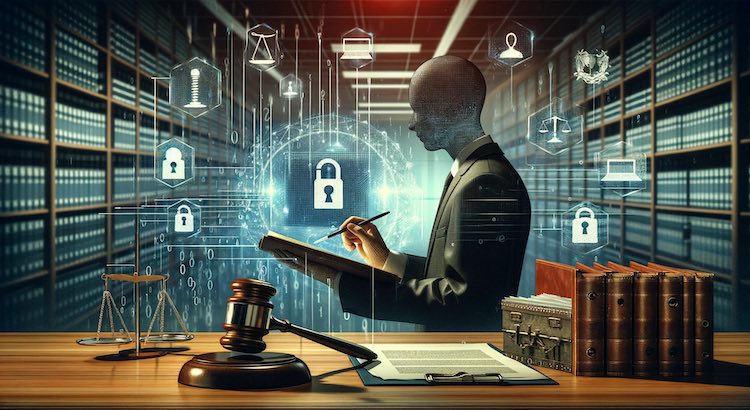Confidentiality in Legal Transcription: Why It Matters and How It’s Protected
Confidentiality is crucial in the legal sector. It safeguards attorney-client privilege and ensures private communication stays secure. This need for privacy goes beyond in-person meetings and extends to every part of legal work, including the transcription of audio recordings into text.
Legal transcription services transform minutes, hearings, and depositions into written records. However, this process involves handling sensitive data. Any mistake can lead to severe consequences for both clients and legal professionals. Here’s what you need to know about confidentiality in legal transcription, how it’s protected, and why it’s so important.
The Importance of Confidentiality in Legal Transcription
Legal documents usually contain private or sensitive information, such as:
- Personal identification details
- Trade secrets and intellectual property
- Testimonies related to ongoing litigation
- Medical or financial information
A breach of confidentiality can result in lost trust, damaged reputations, and financial penalties. According to a 2023 report, data breaches cost American businesses an average of $4.45 million per incident (IBM, 2023). For law firms, the stakes are even higher because of legal regulations and the ethical duty to protect client information.
Laws such as the Health Insurance Portability and Accountability Act (HIPAA) and the General Data Protection Regulation (GDPR) regulate how companies must protect private data. Failing to follow these rules can bring lawsuits and steep fines.
Legal Sector Regulations
Legal professionals must comply with:
- HIPAA: Protects patient medical records in the U.S.
- GDPR: Governs data use and privacy in Europe
- State Bar Regulations: Set standards for legal ethics and client confidentiality
How Legal Transcription Services Protect Confidentiality
Top [transcription services](https://gotranscript.com/transcription-services) use multiple safeguards to protect data. Below are the main ways they keep your legal information secure.
1. Non-Disclosure Agreements (NDAs)
Legal transcriptionists and editors sign NDAs before handling any files. NDAs are binding contracts. They make it clear that sharing client information is not allowed and will result in legal action if broken.
2. Secure File Transmission
Companies use encrypted file transfer protocols (FTPs) or secure web portals for uploads and downloads. Encryption shields sensitive files from hackers and eavesdroppers.
- Files are encrypted during upload and download
- Only approved users receive download permissions
- Some services use two-factor authentication
3. Restricted Access Controls
Only trusted team members with proper clearance can access legal files. Access is managed by:
- Usernames and strong passwords
- Multi-factor authentication
- Role-based permissions (editors, proofreaders)
Access records are logged, so companies can spot and investigate any suspicious activity.
4. Regular Security Audits
Leading transcription services perform regular audits to test and improve their security systems. These checks help ensure compliance with the latest laws and standards.
- Frequent system reviews flag outdated practices
- Third-party inspections validate security measures
- Audit trails help monitor and prevent unauthorized activity
5. Data Encryption
Files are encrypted at every stage—during storage (at rest) and when being sent (in transit). This means no one can read the contents without a decryption key.
- All audio and text files are stored in encrypted folders
- Secure Sockets Layer (SSL) and other encryption standards are used
6. Employee Training and Awareness
Staff members receive ongoing training on privacy rules and confidentiality best practices. This training covers:
- Recognizing phishing attempts and security threats
- The legal consequences of unauthorized sharing
- Steps for reporting security issues
A well-trained team can prevent many mistakes that lead to breaches.
7. Data Retention and Deletion
Once transcription is done, files are either deleted or returned, depending on a client’s wishes.
- Data retention policies set clear guidelines for how long files are kept
- Secure file deletion methods prevent recovery by third parties
Choosing the Right Legal Transcription Provider
When searching for a legal transcription service, look for proof of strong privacy practices. Ask about:
- Whether staff sign NDAs
- What types of encryption they use
- Their compliance with HIPAA and other regulations
- Their past audit results and security policy updates
- How quickly they can delete or return your files after a project
Transparency and a willingness to discuss policies are good signs.
GoTranscript: A Trusted Solution for Secure Legal Transcription
Security matters in legal transcription, and GoTranscript makes it a top priority. With robust transcription services, automated transcription options, and dedicated staff trained in privacy, they deliver accuracy and confidentiality for every project.
Clients can easily order transcription online and rest assured that files are handled with care through encrypted transfers and strict internal controls. GoTranscript follows strong data retention policies and provides transparent transcription pricing for legal professionals.
For those who need extra assurance, GoTranscript also offers transcription proofreading services and flexible AI transcription subscriptions with the same security standards. To see how GoTranscript keeps your legal data confidential and accurate, visit their website for more details and place your secure order today.



















 Verified Order
Verified Order